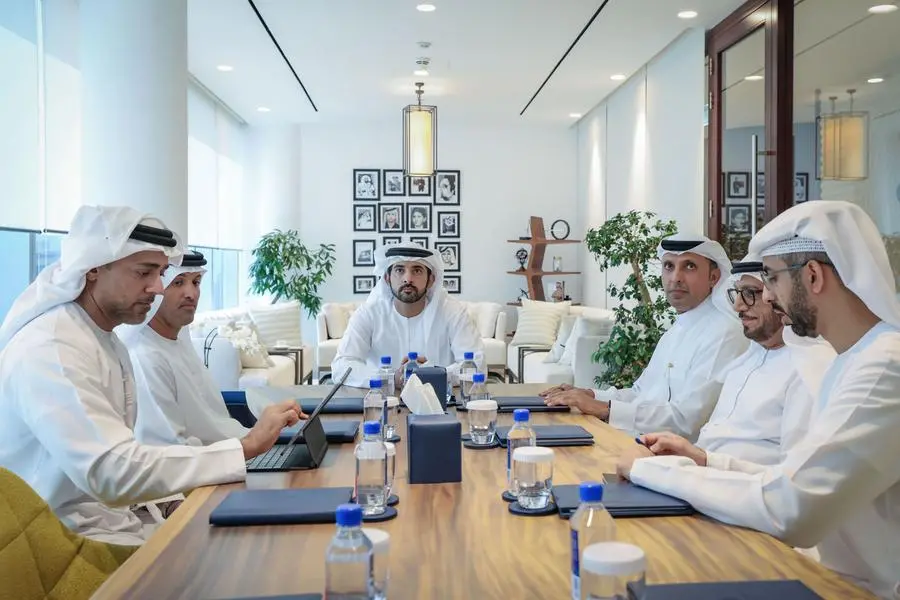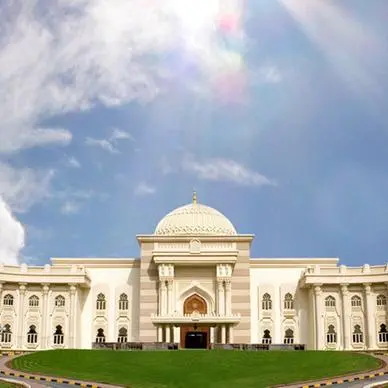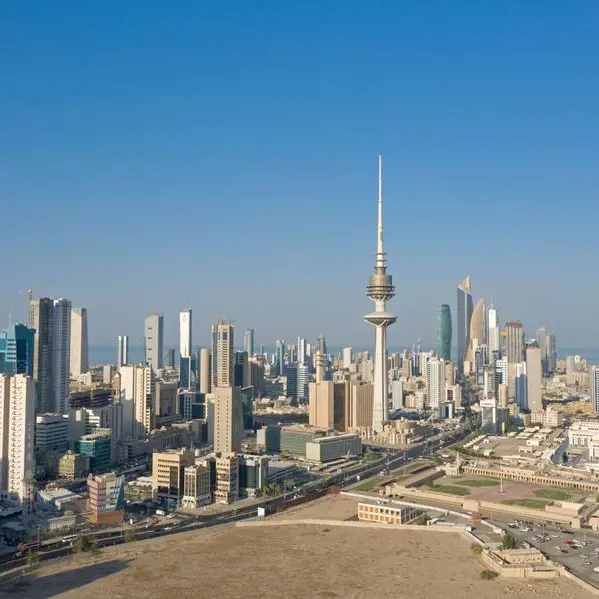PHOTO
DUBAI: Dubai maintained its position as the world’s top city for attracting Greenfield Foreign Direct Investment (FDI) projects in the first half of the year, according to the Financial Times Ltd’s ‘fDi Markets’ data.
Underscoring its competitiveness and appeal to international investors, Dubai attracted 508 Greenfield FDI projects from January to June 2024, representing a 6.2 percent global share, growing from 5.7 percent in the same period last year.
H.H. Sheikh Hamdan bin Mohammed bin Rashid Al Maktoum, Crown Prince of Dubai, Deputy Prime Minister, Minister of Defence and Chairman of The Executive Council of Dubai, said the emirate has significantly strengthened its position as a major player in the global economic landscape thanks to the forward-looking vision of His Highness Sheikh Mohammed bin Rashid Al Maktoum, Vice President, Prime Minister and Ruler of Dubai, which has transformed the emirate into a global hub for foreign direct investment (FDI).
He highlighted that Dubai's evolving economic policies, and its constantly developing infrastructure, continue to consolidate the city’s status as a top destination for investors, multinational corporations, and visitors, reinforcing its pivotal role in the global economy.
Sheikh Hamdan made these remarks during a briefing on H1 2024 FDI figures and the city’s tourism sector performance, delivered by Helal Saeed Almarri, Director-General of Dubai Department of Economy and Tourism, in the presence of senior officials.
“Since 2021, Dubai has consistently maintained its top position in attracting foreign investment for six consecutive half-year periods, driven by its advanced economic system, exceptional infrastructure, and progressive investment policies. This achievement showcases the investors' trust in Dubai's capacity to foster an environment conducive to innovation and sustainable growth," Sheikh Hamdan added.
“We are committed to not just maintaining Dubai's status as a major economic and tourism centre but also ensuring it ranks among the top three global cities for visiting, investing, living, and business,” Sheikh Hamdan further said, emphasising the importance of pushing forward with robust policies and attracting even more investments to fuel the growth of a sustainable, diversified economy, in line with the Dubai Economic Agenda D33, which aims to double the emirate's economic size by 2033.
Ranked ahead of major financial hubs such as London, Singapore and New York City, Dubai has now held the top global position in attracting Greenfield FDI projects for six consecutive half-year periods since the second half of 2021. In H1 2024, Dubai was No.1 across a range of sectors, including tourism, real estate, artificial intelligence, headquarters, logistics and fintech, further solidifying its position as a global investment centre.
Dubai rose three spots globally from sixth to third place for attracting Greenfield FDI capital in H1 2024, and from third to first in the Middle East and North Africa (MENA) region, compared to H1 2023. This improvement reflects the city’s ongoing efforts to create an investor-friendly environment, which includes streamlined regulations, advanced infrastructure, and strategic initiatives aimed at fostering economic growth.
Securing the top rank for Greenfield FDI capital in MENA signifies Dubai’s dominance as the region’s premier investment hub and also reinforces the city's leadership role in driving regional economic development.
Highlighting Dubai’s strategic importance and robust economic environment, these impressive results align with the ambitious goals of the Dubai Economic Agenda D33 to double the size of Dubai’s economy by 2033, with increasing foreign direct investment a key priority.
Overall, in the first half of the year, a total of 801 FDI projects valued at AED21.85 billion were announced in Dubai, compared to AED20.30 billion across 803 projects in the same period in 2023, according to Dubai FDI Monitor data. This includes greenfield FDI, new forms of investments (NFIs), mergers & acquisitions, reinvestments, VC-backed FDI and greenfield joint ventures.
Total estimated FDI capital increased by 8 percent in H1 2024, compared to H1 2023, demonstrating Dubai’s continued attractiveness for higher-value investments.
For jobs created through inward FDI, Dubai ranked fifth globally in H1 2024 and continued to hold the top position in the MENA region. According to Dubai FDI Monitor data, Dubai experienced a surge in talent attraction across key sectors such as food and beverages, business services, software and IT services, textiles, consumer products and financial services.
Helal Saeed Almarri, Director General of Dubai Department of Economy and Tourism (DET), said, “Dubai’s sustained leadership in attracting Greenfield FDI projects speaks to the city’s strategic foresight and its unique appeal to international investors. Attracting over 500 projects in the first half of 2024 alone is a testament to the city’s vision and enabling policies, guided by His Highness Sheikh Mohammed bin Rashid Al Maktoum, and overseen by His Highness Sheikh Hamdan bin Mohammed bin Rashid Al Maktoum. The Dubai Economic Agenda, D33 continues to pave the way for long-term economic expansion, enabling Dubai to double its GDP while driving innovation in sectors such as AI, fintech, logistics, and tourism.
"As businesses face challenges like economic volatility, regulatory burdens, and talent shortages, Dubai offers a compelling solution with its pro-business regulatory environment, cutting-edge infrastructure, and unrivalled global connectivity. By fostering talent development and embracing digital transformation, Dubai is creating an unparalleled ecosystem where businesses can grow, innovate, and thrive. With ambitious goals set under initiatives like the Dubai Social Agenda 33, the city is not just an economic hub but a global leader in quality of life, education, and sustainability. For international businesses and investors, Dubai is the ideal destination to seize new growth opportunities and navigate the challenges of tomorrow’s business landscape.”
Hadi Badri, CEO of Dubai Economic Development Corporation (DEDC), said, “Dubai’s exceptional performance in attracting high-value FDI projects is driven by the forward-thinking strategy of our visionary leadership to create a sustainable economy in collaboration with our valued stakeholders and partners. The city’s continued success, marked by significant increases in both project volume and capital, underscores our commitment to fostering an investor-friendly environment through innovative initiatives and robust economic policies, further improving the city’s global competitiveness and ensuring Dubai maintains its position as a leading hub for business and investment. We continue to collaborate with stakeholders across the public and private sectors to further enhance the attractiveness of Dubai’s business landscape, and engage with investors globally to forge new opportunities for economic growth.”
During the meeting, DET updated H.H. Sheikh Hamdan on Dubai’s continued strong tourism sector performance, which was demonstrated in the city’s number one ranking globally for Greenfield FDI projects, Greenfield FDI capital, and jobs created through Greenfield FDI in H1 2024. Furthermore, between January and July 2024, Dubai welcomed 10.62 million international overnight visitors, representing a year-on-year increase of 8 percent. This impressive growth comes on the heels of an already record-breaking year in 2023, further cementing Dubai’s position as a top global destination.
Reflecting the robust investment opportunities in the tourism sector, the city’s hotels continue to register strong performance, with growth across the key metrics of average occupancy, average daily rate (ADR) and revenue per available room (RevPAR).
Issam Kazim, CEO of Dubai Corporation for Tourism and Commerce Marketing (DCTCM), said, “Driven by the city’s dynamic leadership, and with the support of our partners across the public and private sectors, Dubai continues to solidify its position as not only one of the world’s most popular destinations to visit, but also to live, work and invest in. Dubai’s ranking as a global leader in Greenfield FDI for tourism - across projects, capital and job creation – reflects the destination’s unique ability to attract and foster investment, and deliver significant returns for the tourism sector. Guided by the forward-thinking initiatives of the D33 Agenda, we will continue driving this positive momentum, actively seeking new and innovative approaches to enhance repeat visitation, improve access to the city, establish long-term advocacy for Dubai, and attract further investment."
In terms of investment types for FDI projects into Dubai, new forms of investments (NFIs), VC-backed FDI and reinvestment FDI projects increased by 5.5 percent, 3.6 percent and 0.7 percent respectively. NFIs, also referred to as non-equity modes of investments, demonstrate the level of domestic market maturity in Dubai and the diverse non-equity-based partnership opportunities across joint ventures, strategic alliances, sub-contracting, licensing, production sharing, franchising and turnkey projects in the market.
Dubai FDI Monitor data revealed that the top five source countries by FDI capital accounted for 67.1 percent of the total estimated flows in H1 2024, while the top five source countries accounted for 50.2 percent by FDI projects. India was the source country with the highest total estimated FDI capital into Dubai, accounting for 19.9 percent, followed by Switzerland (19.6 percent), United States (12 percent), United Kingdom (8.3 percent) and France (7.4 percent). In terms of total announced FDI projects, the United Kingdom led the way with 15.4 percent, followed by India (13.7 percent), United States (12.7 percent), Italy (4.2 percent) and France (4.2 percent).
Meanwhile, the top five sectors accounted for 57.4 percent of total estimated FDI capital flows into Dubai and 68.6 percent of total announced FDI projects, according to Dubai FDI Monitor data. Based on FDI capital, the leading sectors were building and materials (17.3 percent), software and IT services (14.3 percent), hotels and tourism (10.2 percent), real estate (9.5 percent) and automotive original equipment manufacturers (6.1 percent), while the top sectors based on FDI projects were business services (19.4 percent), software and IT services (15.2 percent), food and beverages (14.1 percent), textiles (11.8 percent) and consumer products (8.1 percent).





















